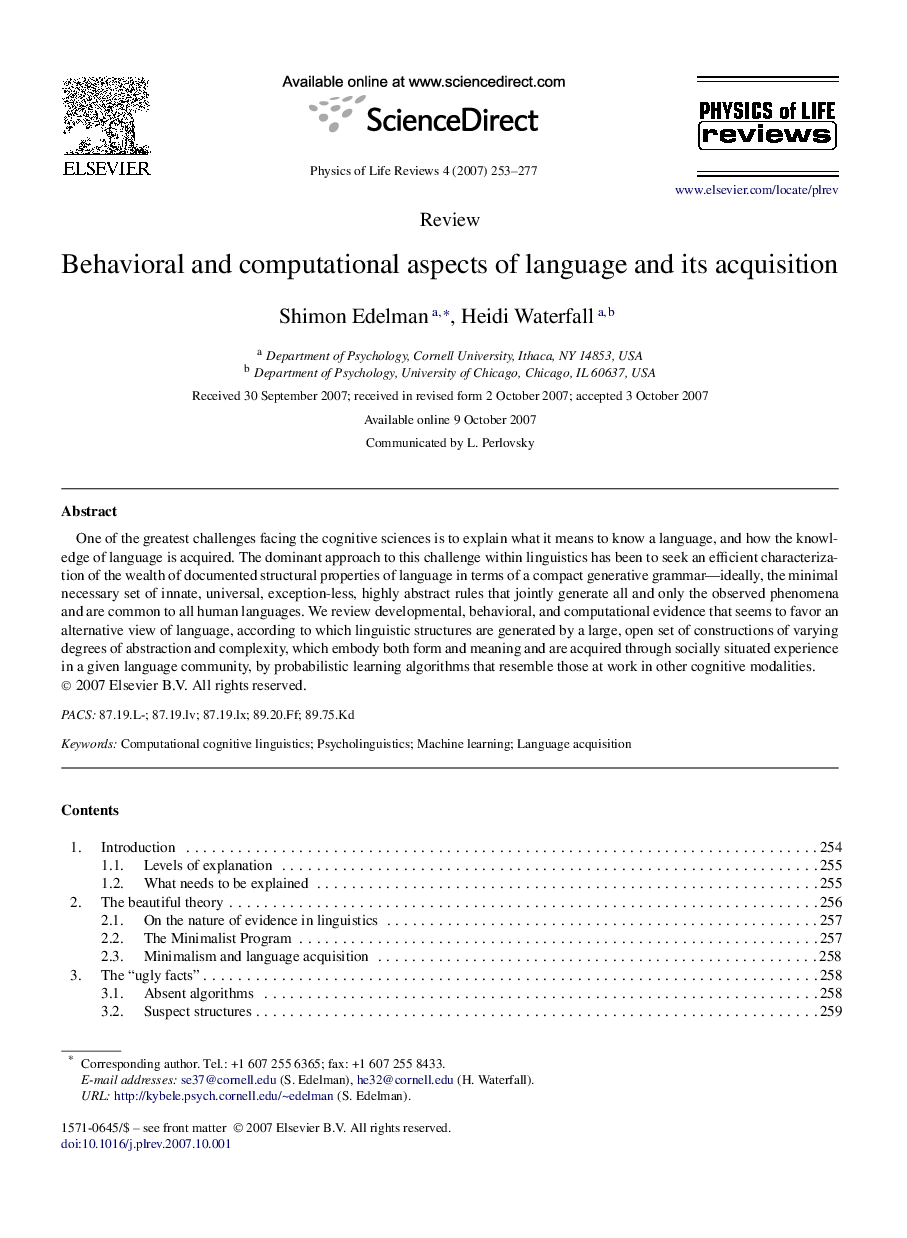| Article ID | Journal | Published Year | Pages | File Type |
|---|---|---|---|---|
| 1873087 | Physics of Life Reviews | 2007 | 25 Pages |
One of the greatest challenges facing the cognitive sciences is to explain what it means to know a language, and how the knowledge of language is acquired. The dominant approach to this challenge within linguistics has been to seek an efficient characterization of the wealth of documented structural properties of language in terms of a compact generative grammar—ideally, the minimal necessary set of innate, universal, exception-less, highly abstract rules that jointly generate all and only the observed phenomena and are common to all human languages. We review developmental, behavioral, and computational evidence that seems to favor an alternative view of language, according to which linguistic structures are generated by a large, open set of constructions of varying degrees of abstraction and complexity, which embody both form and meaning and are acquired through socially situated experience in a given language community, by probabilistic learning algorithms that resemble those at work in other cognitive modalities.
